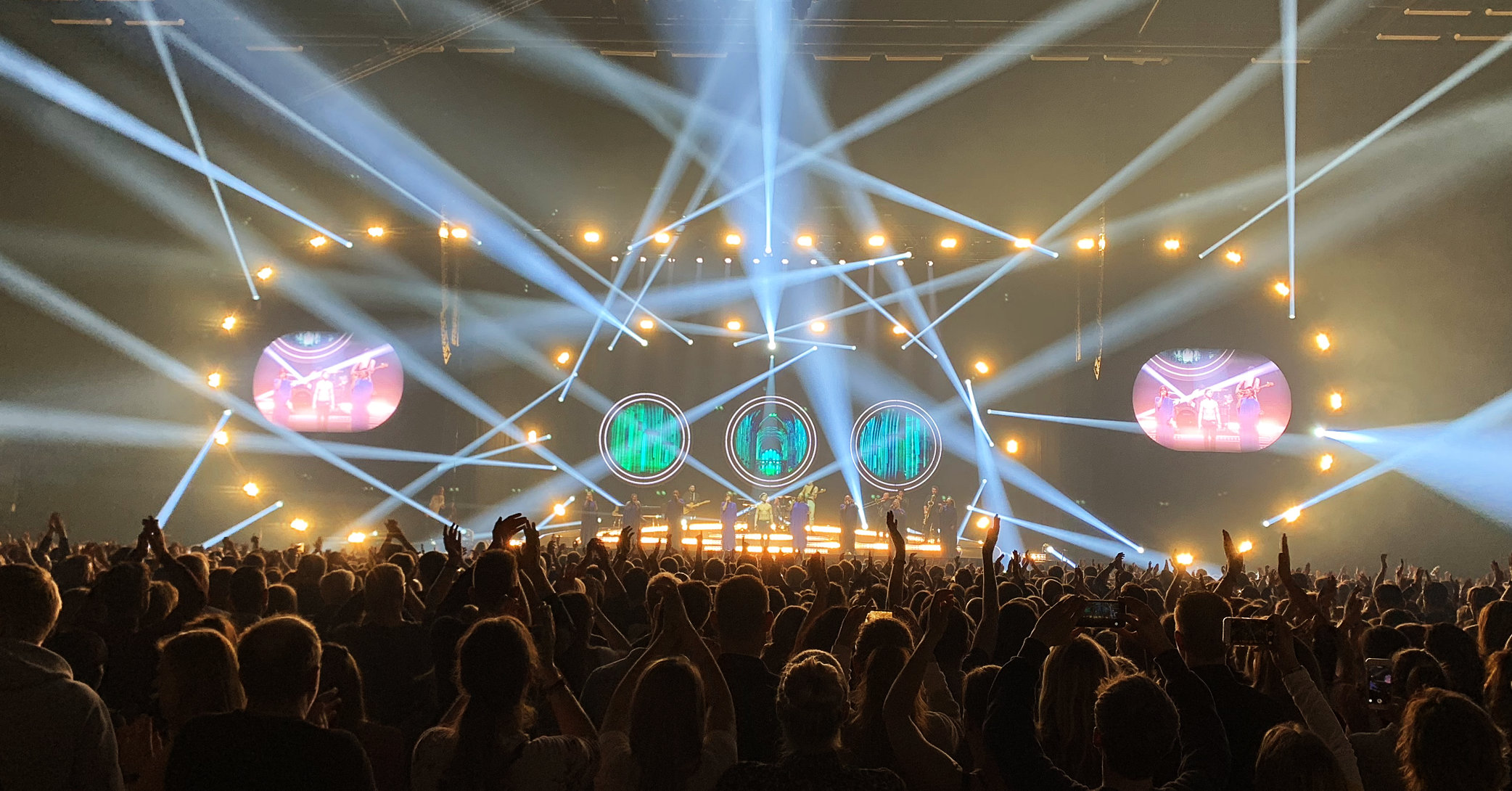
AX32 Takes the World by Storm with Lukas Graham
For Lukas Graham’s live production team, AX32 has proven a flexible and very compact solution that scales to fit any need they have when being on the road – whether the context is a radio or TV promo tour or playing at large venues or stadiums.
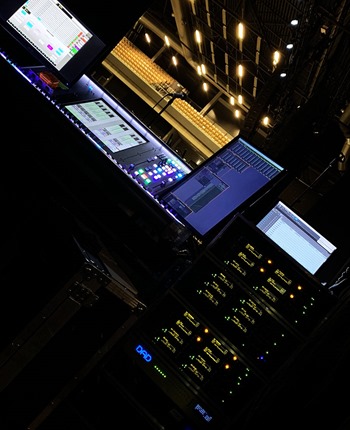
From day one in our Pro Audio endeavors, the highest possible audio quality has been the first box on the goal sheet to be ticked off. We wanted to make the transition to and from the digital sound natural and great. And we set the same high standards when we began to develop microphone preamps.
It seemed only natural that the first audio engineers to embrace our solutions were in the location recording and studio spheres, but as our platforms grew into also handle comprehensive and complex audio routing within the digital domain, a whole new world emerged.
Soon, post production facilities and even broadcasters started implementing our AX and DX units, and now we are about to see this whole process repeat itself once again…
Life on the Road…
This new chapter that is about to begin is all about Live Production. Many high-end live productions are every bit as complex and just as large as the big post production facilities and music recording studios. And basically, they have the same needs – and high demands in terms of audio quality.
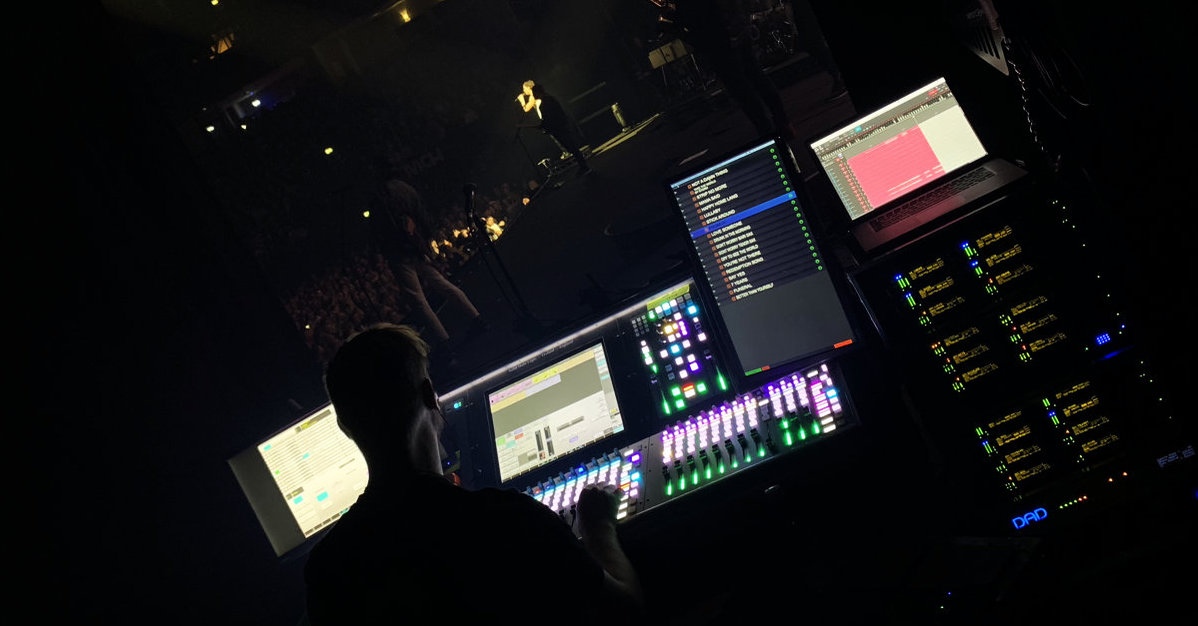
…with Lukas Graham
One of the live production teams that have embraced AX32 is Lukas Graham’s. So, when we got the opportunity to catch up with their FOH Engineer and Monitor Engineer, we grabbed it instantly. And we were eager to learn more about how they have utilized their AX32 within the production setup – and to hear in which way it has benefitted their daily work when touring the world.
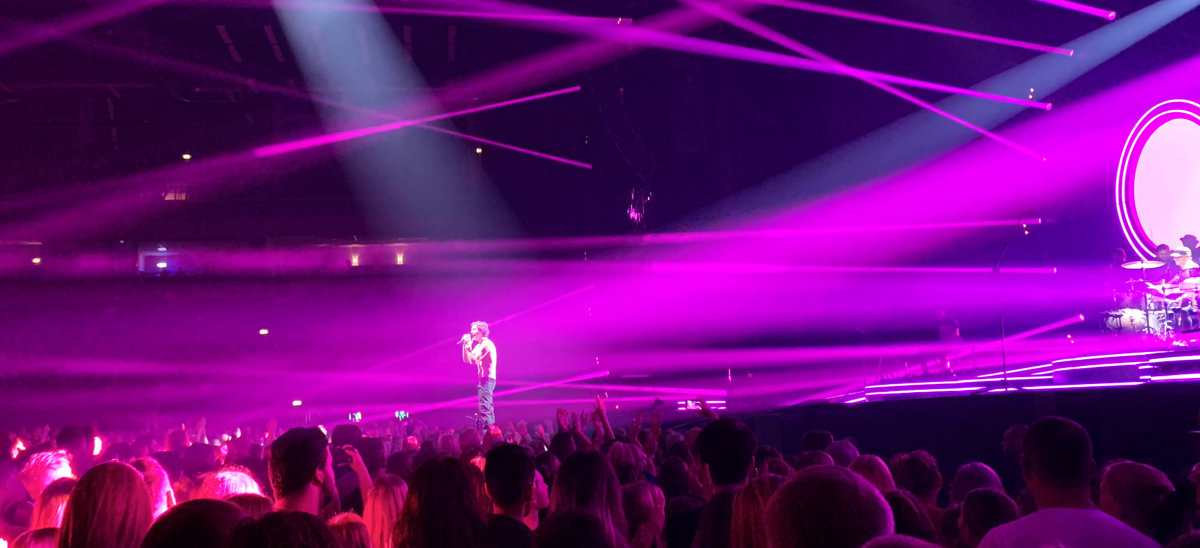
The Technical Setup
In essence, their AX32 unit is equipped with three analog expansion cards with preamps, piling up to a total of 24 inputs with microphone preamps.
But that is only a fraction of the story here because a lot of the signals in use during a Lukas Graham concert are already digital, which includes backing tracks, a ton of keyboard signals that run directly off a MacBook Pro and all of the wireless mics are also connected digitally to the AX32.
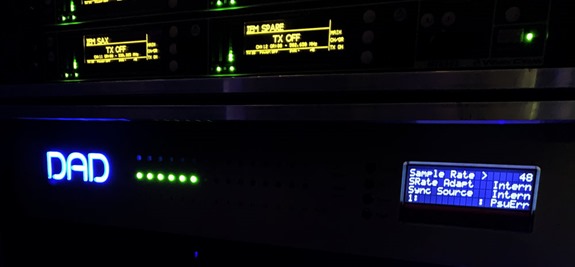
In total, the AX32, which is physically located next to the monitor console, gathers around 80 inputs across analog and digital. From then on a ton of different feeds are created and passed on.
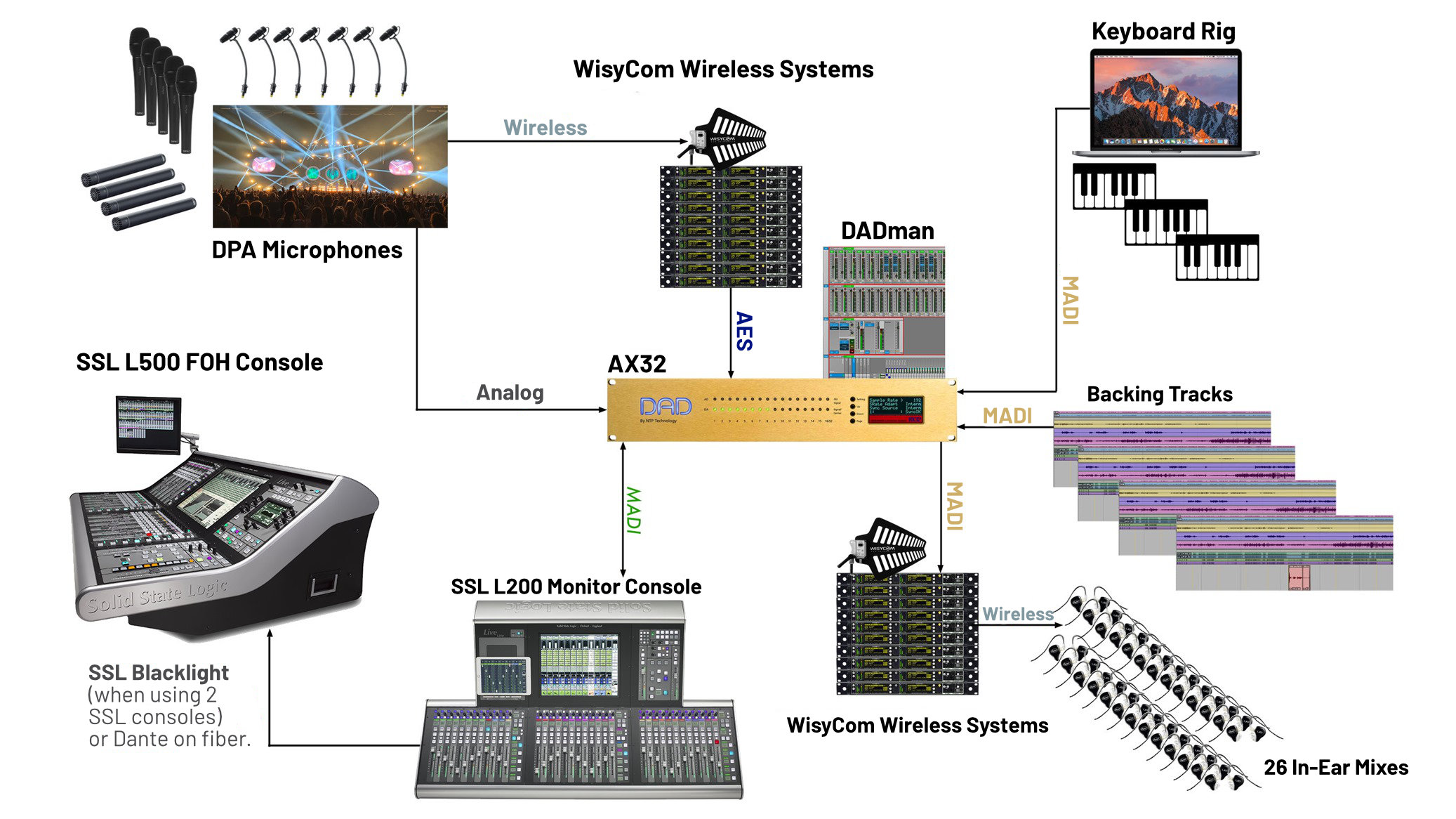
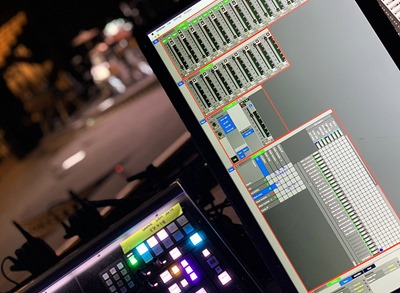
The initial connection to the Solid State Logic L200 monitor console is made via MADI, and from there, all channels are sent via the proprietary SSL Blacklight protocol to the SSL L500 FOH console.
The Blacklight connection runs on fiber optical cables and seemed like an obvious choice since both consoles are from the SSL L-series of live mixing desks, but in case a different console is being used either for monitor or FOH, it is possible to do the same thing using Dante on a fiber connection.
The routing-power of the DADman matrix also plays a major role in the Lukas Graham live production. Of the 80 input channels that go directly to the AX32, no less than 26 individual monitor sends are created and distributed back to the musicians and stage techs during the concert.
Better Sound Quality Equals Better Live Mixes
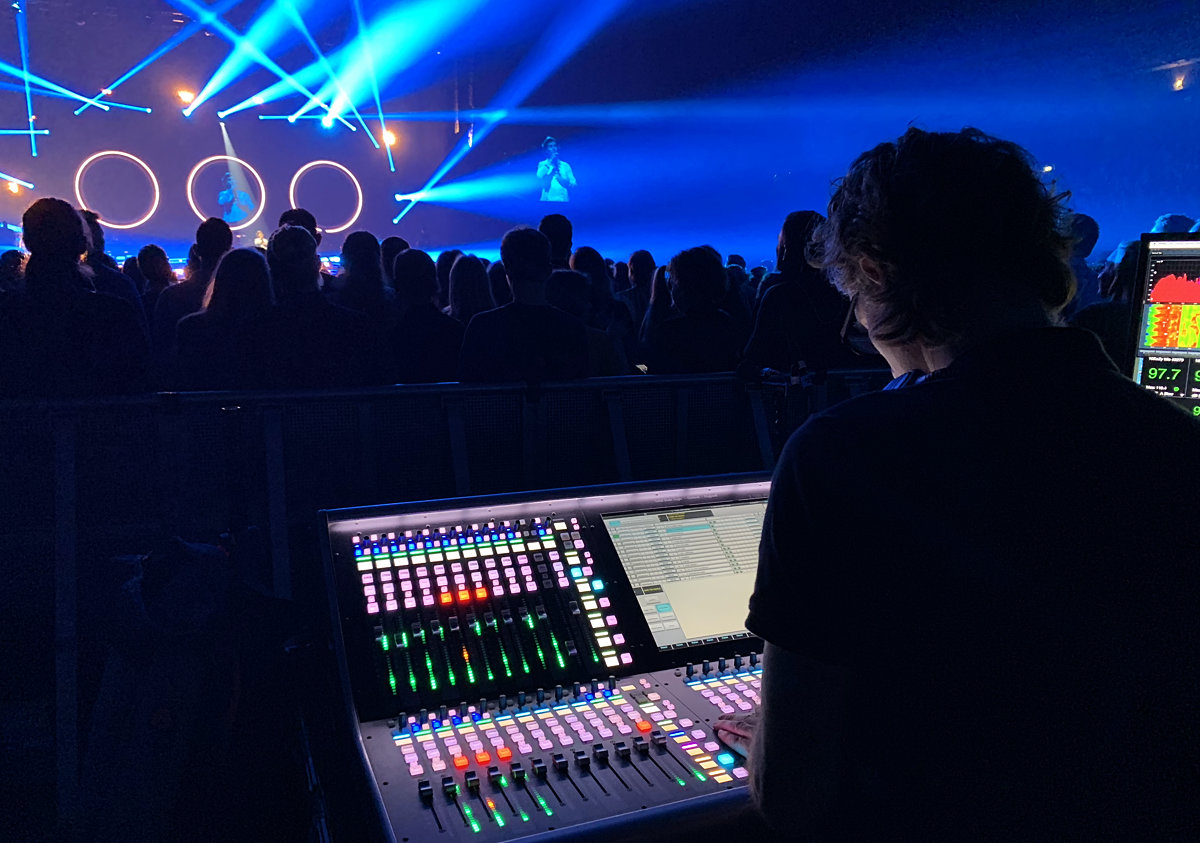
To FOH Engineer, Frank Grønbæk, there is no doubt that there was an immediate and significant increase in pure sound quality when they implemented the AX32 as the stage box with mic preamps and conversion.
“The mic preamps sound super-clear and transparent. And the signals are very easy to work with afterwards,” says Frank Grønbæk. “It’s definitely easier to make a great live mix, and I found that I now use much less EQ and processing in general. Basically, adding the AX32 has been a lift in all ways.”
Scalable for any Purpose
The AX32 unit has taken a very central role in the entire setup around the live activities of the band, and this is not only about arena torus like the one we visited. Often, Lukas Graham travels the world with a smaller setup on dedicated promo tours, which means playing live gigs in smaller settings in radio and TV shows.
And also in this context, AX32 acts as the immediate stage box that collects all audio signals and then routes to a (smaller) monitor console and redistributes in-ear headphone mixes to the musicians.
Now, instead of sending a feed to a FOH console and massive line arrays, there needs to be a full mix that goes to the broadcaster. And thanks to the flexible output options of the AX32, no matter what signal format the broadcaster prefers, the sound engineers are able to provide it – analog, AES, MADI or Dante.
Compact and Flight-Ready
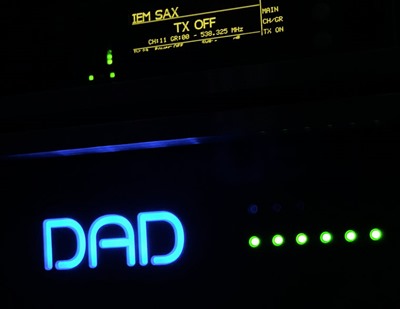
Apart from the obvious benefits of increased audio quality in general, which in turn creates a foundation for the sound engineers to make better live mixes, there is also a much more practical and physical benefit from having a stage box and routing matrix like the AX32 in a live production setup.
In essence, the entire AX32 solution is taking up only 2 units of rack space, and the equipment that it replaced was taking up 12-14 units. When loading into a truck that may not be much of a difference, but when checking the gear into a commercial flight, size does indeed matter.
And as mentioned, during promo tours, playing at radio and TV stations rather than arenas and stadiums, being able to travel light is a huge benefit.
Sounding Great, Guys. Sounding Great!
Well, to wrap up our visit, we were invited to experience the concert from within the FOH area right in the middle of the arena.
While the signal chain is generally of a very high quality with DPA microphones, SSL consoles and WisyCom wireless systems, it’s difficult to say to which degree the AX32 was responsible, but there was just no doubt that the live sound during the Lukas Graham concert in Herning, Denmark, was among the very best we have ever heard in an indoor arena.
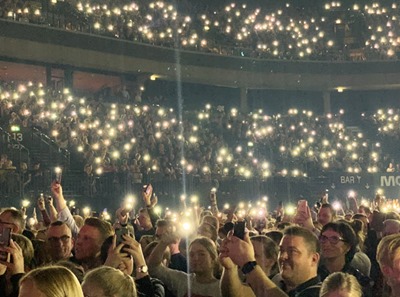
The sound was detailed and clear, and each element in the production, which includes drums, bass, guitar, keys, 3 horns, an 8-piece gospel choir and a wealth of backing tracks, seemed to have its own space. Ultimately, everything blended in an organic and natural way that just sounded great.
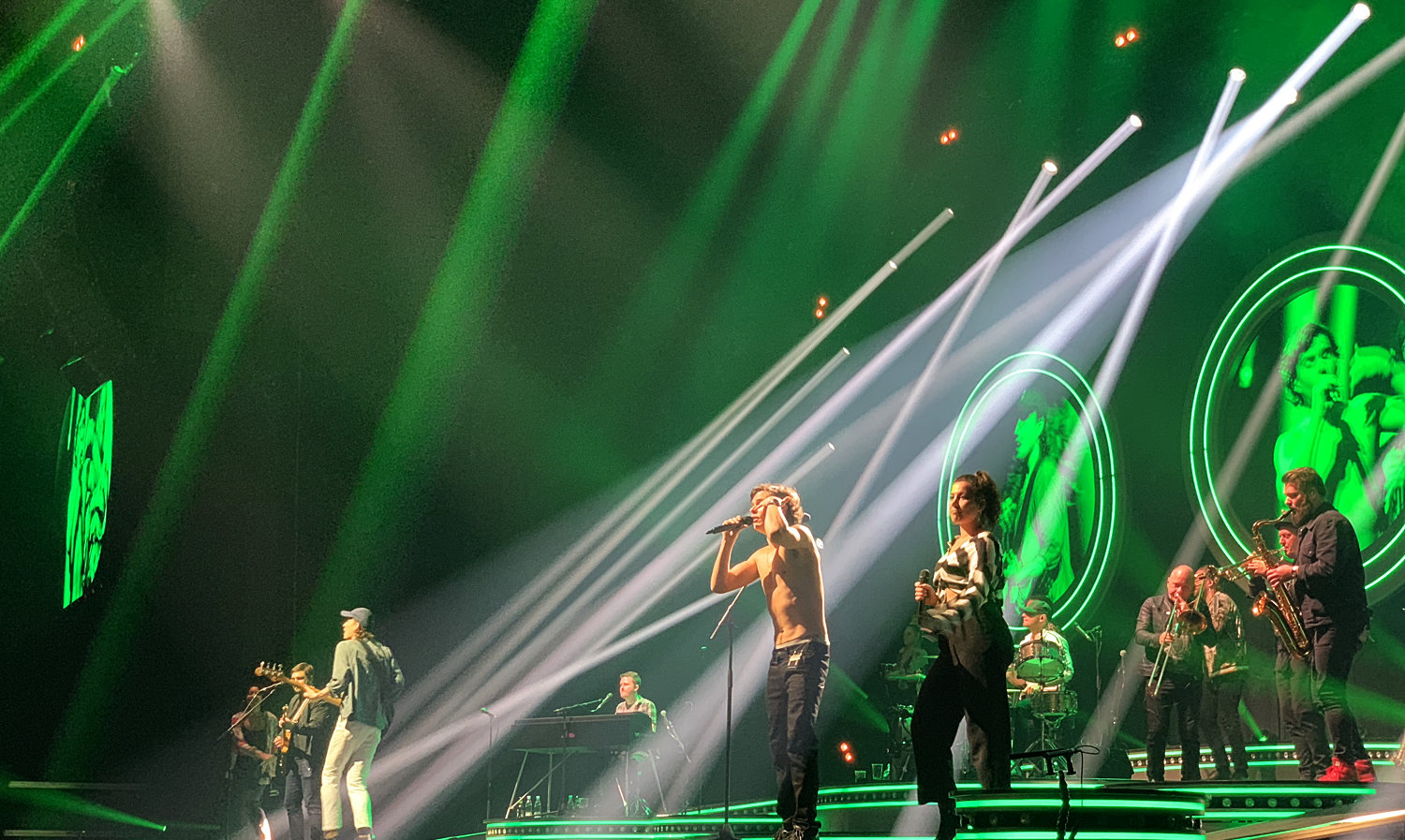
Admitted, having great musicians on the stage and of course capable ears and hands of the sound engineers at work played a huge part. Definitely! But still, we’d like to think that AX32 also contributed in creating a final output of almost hifi-like sound quality that is rarely heard in a massive arena with unreasonably large concrete surfaces.
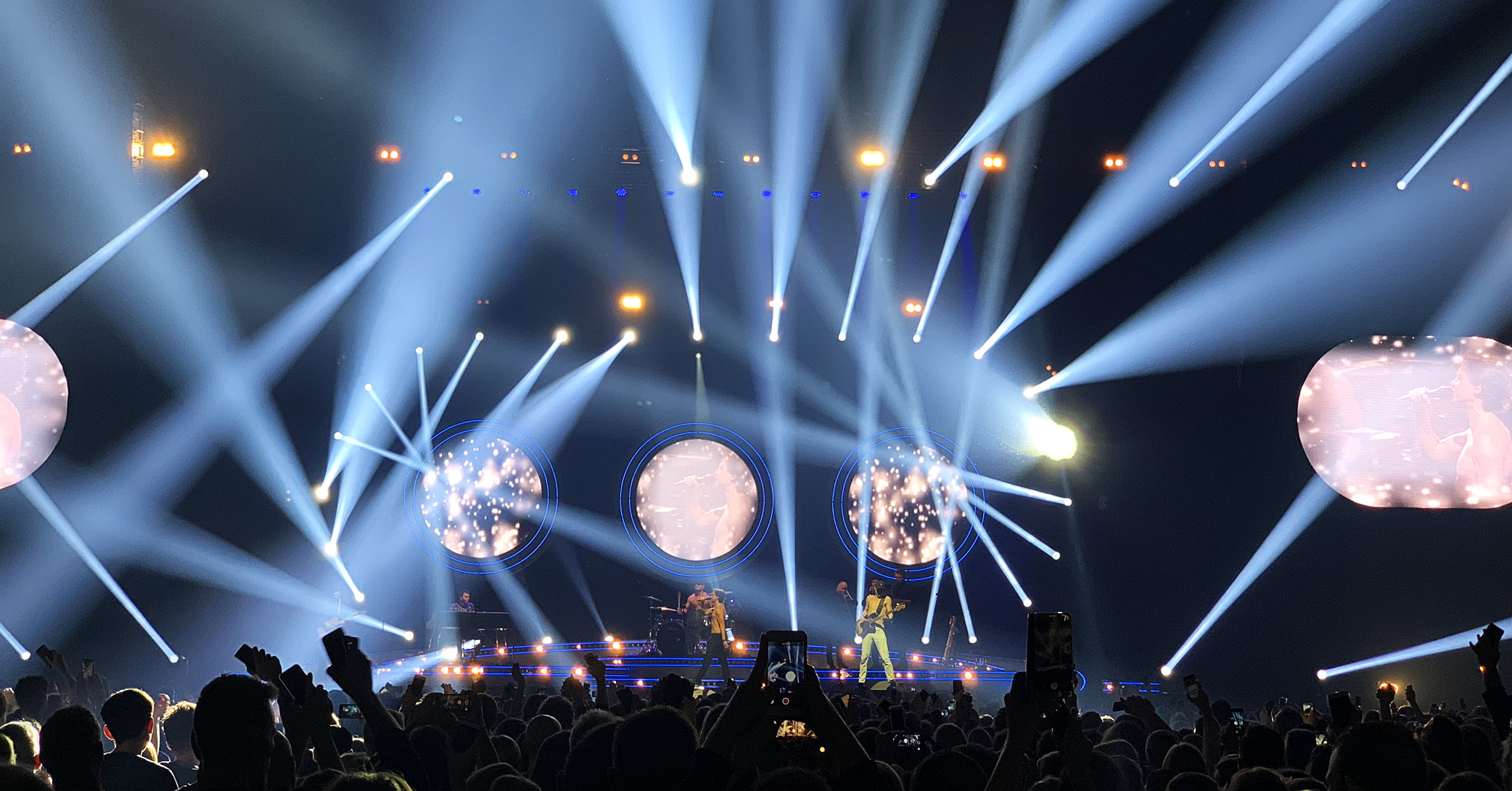
Bottom line – in any case – is that an AX32 is absolutely as valuable and well-fit for live productions as it is for post production, high-resolution location recording or music recording studios.
